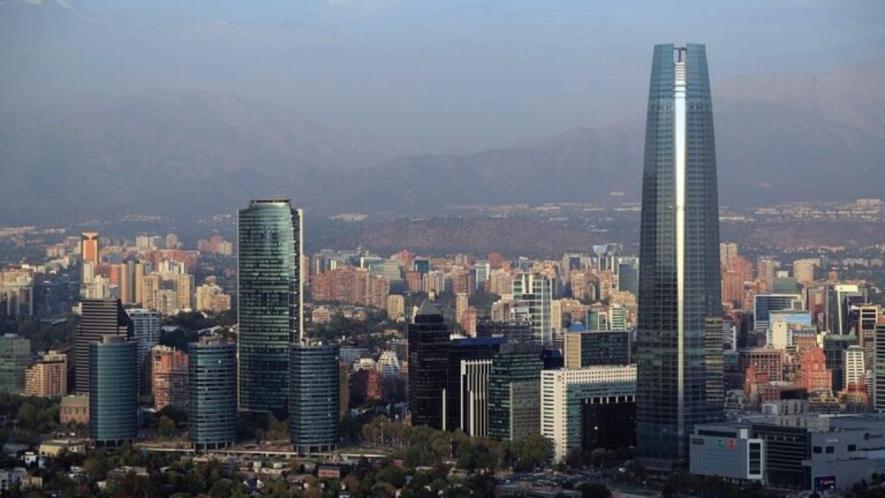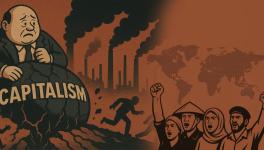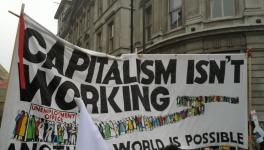Chile and What the Market Thinks

The Santiago neighborhood nicknamed "Sanhattan". Photo: Wiki commons
In an economy as small as Chile’s, and with the degree of concentration that characterizes it, the constant appeal to “what the market thinks” should at least raise doubts. Far from representing a collective consciousness or objective technical rationality, this alleged oracle is nothing more than the amplified voice of a small group of businesspeople, many of them natural resource rent seekers or beneficiaries of colluding marketing models, who assert their political weight as a direct – and often almost-criminal – means of influencing the game rules.
Let us agree that the opinions that really matter – as SMEs and smaller players in the economic system are well aware – are those of a few who have privileged access to the media, the judiciary, and the Chilean Congress, with particular influence in the Senate. They have a royal entourage that translates their interests into perspectives and content that sets the tone for public conversation, even before it begins.
While neoclassical thinking and monetarist dogma are being seriously questioned in much of the world, Chile maintains – as if it were a closed cult – a single approach that restricts what is politically and economically thinkable. This orthodoxy acts as an intellectual customs office, leaving out alternative models that already govern a significant part of the world, both in terms of population and product.
Even the United States has long since ceased to follow the prescriptions of the institutions born out of Bretton Woods to the letter, the very same institutions that helped consolidate its global economic hegemony. Russia, in the midst of war with NATO, is showing higher growth than the United States and Europe, which continues to fall like a concrete parachute. China is making remarkable economic, social, and even environmental progress. And the countries of Southeast Asia, far from submitting to foreign rules, are beginning to chart their own paths: Indonesia, for example, has banned the export of mineral concentrates, a decision that Chile does not even dare to debate.
Nor are Latin American experiences being seriously studied. Mexico faced the pandemic without applying the spending cuts dictated by the Chilean manuals: it maintained public spending, invested in infrastructure, promoted an active industrial policy, and bet on research and development. The result was stability and growth. Here, on the other hand, we continue to repeat formulas that only benefit those who already control the board.
When they tell you that “the market is concerned”, think that the market is the same people who hire the Hermosillas (a renowned corruption case), increasingly own the media you listen to, and, through their decisions, consolidate as rights what are only privileges.
Jorge Coulon is a musician, writer, and cultural manager. He is a founding member of the group Inti Illimani. He has published Al vuelo (1989); La sonrisa de Víctor Jara (2009); Flores de mall (2011); and, most recently, En las cuerdas del tiempo. Una historia de Inti Illimani (2024).
Jaime Bravo is president of the Corporación Encuentro Ciudadano. He is an economist with training in government techniques and studies in psychology. He is an advisor to public and private institutions in Chile and internationally on situational planning and organizational development. He is a writer and essayist in the areas of critical thinking, economics, strategy, and analysis of different dimensions of the national reality.
This article was written by Globetrotter.
Courtesy: Peoples Dispatch
Get the latest reports & analysis with people's perspective on Protests, movements & deep analytical videos, discussions of the current affairs in your Telegram app. Subscribe to NewsClick's Telegram channel & get Real-Time updates on stories, as they get published on our website.
























